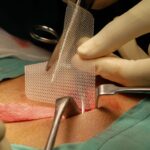Regular dental care plays a foundational role in maintaining oral health and preventing complications. Understanding what dentists do and the role of routine teeth cleanings helps patients make informed decisions about their care. Here is more information on dental professionals, their services, and the specifics of dental cleanings:
What Is a Dentist?
A dentist is a medical professional who specializes in diagnosing, treating, and preventing conditions affecting the teeth, gums, and mouth. These healthcare providers possess expertise in oral anatomy, pathology, and various treatment techniques. They work to maintain oral health through preventive care and address problems when they arise. Their training covers multiple aspects of oral healthcare, from basic cleanings to complex procedures.
What Services Do They Offer?
Dental practices offer a comprehensive range of services tailored to address various oral health needs. Preventive services form the foundation of dental care and include routine cleanings, fluoride treatments, and oral examinations. These services help identify potential problems before they become serious issues.
Restorative services repair damage to teeth and restore function. Common restorative procedures include fillings for cavities, crowns for damaged teeth, and bridges or implants to replace missing teeth. Root canal therapy treats infected tooth pulp, while extractions remove teeth that cannot be saved. Cosmetic services, including teeth whitening, veneers, and cosmetic bonding, focus on improving the appearance of teeth and smiles.
What Do Teeth Cleanings Entail?
Professional teeth cleanings involve several systematic steps designed to remove plaque and tartar buildup. The process typically begins with a visual examination of the mouth, teeth, and gums. The dental professional looks for signs of inflammation, decay, or other concerns.
Scaling follows the examination and involves removing plaque and tartar from tooth surfaces and along the gumline. This process uses specialized instruments to reach areas that regular brushing and flossing cannot adequately clean. The hygienist may use both hand instruments and ultrasonic scalers for thorough removal. A fluoride treatment may be used to conclude the cleaning, which strengthens tooth enamel and provides additional protection against decay.
How Often Should They Occur?
Most dental professionals recommend professional cleanings every six months for people with good oral health. This frequency enables regular monitoring of oral health, preventing the accumulation of significant plaque and tartar buildup. The six-month interval also allows early detection of potential problems.
Some individuals may need more frequent cleanings based on their oral health status. Your dentist will assess your individual needs and recommend an appropriate cleaning schedule. This personalized approach evaluates your oral health history, current condition, and risk factors for dental problems.
What Are the Benefits?
Professional dental cleanings offer multiple benefits that go beyond what home care alone can achieve. Cleanings remove hardened tartar that cannot be eliminated through regular brushing and flossing. This removal helps prevent gum disease and tooth decay, which can lead to more serious complications if left untreated.
Regular cleanings also enable the early detection of oral health issues. Dentists can identify cavities, gum disease, and other issues in their early stages when treatment is typically more effective. Early intervention can prevent the need for more extensive procedures later. Maintaining good oral health through regular cleanings may also help reduce the risk of broader health issues.
Book an Appointment Now
Professional dental care, including regular cleanings and examinations, forms the cornerstone of good oral health. Understanding what dentists do and what to expect during dental cleanings can help you approach dental care more effectively. Contact your local dental office to schedule your next cleaning and examination. Taking this proactive step supports your oral health and contributes to your overall well-being.





